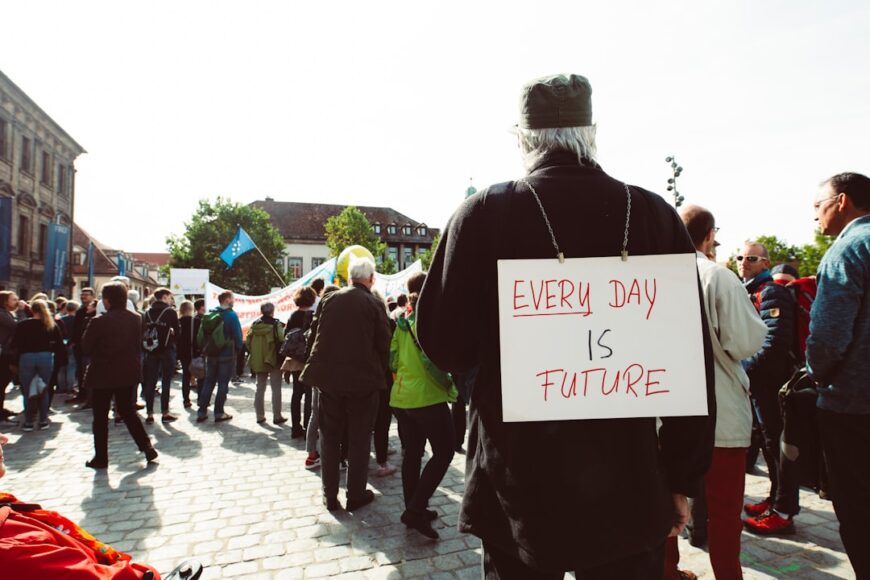
In recent years, there has been a significant increase in the number of women participating in Israeli politics. This growing presence of women in the political arena is a positive development that reflects the progress made towards gender equality in Israeli society. Women’s political participation is crucial for promoting gender equality and ensuring that women’s voices are heard in decision-making processes.
Historical Overview of Women’s Political Participation in Israel
Women’s suffrage in Israel was granted in 1948, the same year that the state of Israel was established. Since then, women have played an important role in Israeli politics. In the early years of the state, there were several female political leaders who made significant contributions to Israeli society. Golda Meir, for example, served as the Prime Minister of Israel from 1969 to 1974 and was one of the first female heads of state in the world.
However, despite these early successes, women in Israeli politics have faced numerous challenges. They have often been underrepresented in political decision-making bodies and have had to overcome gender biases and stereotypes. This has made it difficult for women to gain leadership positions and have their voices heard on important issues.
Female Representation in the Knesset: Progress and Challenges
Currently, women make up about 30% of the members of the Knesset, Israel’s parliament. While this is an improvement compared to previous years, it still falls short of achieving gender parity. Efforts have been made to increase female representation in the Knesset, such as implementing quotas for political parties to include a certain percentage of women on their candidate lists.
However, there are still challenges that women face in the Knesset. They often encounter sexism and discrimination, both overt and subtle, which can hinder their ability to effectively participate in political debates and decision-making processes. Additionally, women often face barriers to advancing to leadership positions within their political parties, which further limits their influence and impact.
Women’s Leadership in Major Israeli Political Parties
Despite the challenges they face, there have been notable female leaders in major Israeli political parties. For example, Tzipi Livni served as the leader of the Kadima party and was the first woman to be elected as the leader of a major political party in Israel. Other female leaders include Shelly Yachimovich of the Labor party and Ayelet Shaked of the New Right party.
The presence of women in leadership positions within political parties has had an impact on party platforms. Women leaders have often advocated for policies that promote gender equality and women’s rights. They have also brought attention to issues that are important to women, such as childcare, healthcare, and work-life balance.
Women’s Political Activism in Israeli Society
Women in Israel have been actively involved in social and political movements, advocating for change and pushing for greater gender equality. They have played a crucial role in promoting social change and challenging traditional gender roles and norms.
One example of women’s political activism in Israeli society is the Women Wage Peace movement. This grassroots organization brings together women from diverse backgrounds and political affiliations to advocate for a peaceful resolution to the Israeli-Palestinian conflict. Through their activism, these women are challenging the status quo and working towards a more inclusive and peaceful society.
The Role of Women in Shaping Israeli Foreign Policy
Women have also played an important role in shaping Israeli foreign policy. There are female diplomats and foreign policy experts who have made significant contributions to Israel’s international relations. Their perspectives and experiences as women bring a unique perspective to foreign policy discussions and decision-making processes.
For example, Tzipi Hotovely served as Israel’s Deputy Minister of Foreign Affairs from 2015 to 2020. During her tenure, she worked to strengthen Israel’s relationships with other countries and promote Israel’s interests on the international stage. Her presence in the foreign ministry helped to diversify and broaden the perspectives that inform Israeli foreign policy.
Female Powerhouses in Israeli Government: Profiles of Influential Women
There are several influential women in Israeli politics who have made a significant impact on Israeli society and politics. One such woman is Miriam Peretz, an educator and activist who lost two sons in combat. Despite her personal tragedy, she has dedicated her life to promoting education and unity in Israeli society. She has been recognized for her work with numerous awards, including the Israel Prize, the country’s highest civilian honor.
Another influential woman is Orly Levy-Abekasis, a former member of the Knesset who founded the Gesher party. She has been a strong advocate for social justice and has worked to address issues such as poverty, inequality, and discrimination. Her leadership and activism have helped to bring attention to these important issues and push for change.
Women’s Rights and Gender Equality in Israeli Politics
There has been progress made in promoting women’s rights and gender equality in Israeli politics. For example, there have been efforts to increase female representation in political decision-making bodies, such as the implementation of quotas for political parties. There have also been policies put in place to address gender-based violence and discrimination.
However, there are still ongoing challenges and areas for improvement. Women continue to face barriers to political participation and leadership positions. They also face discrimination and sexism within political institutions. Additionally, there is still work to be done to address gender-based violence and discrimination in Israeli society.
The Intersection of Religion and Women’s Political Participation
Religion plays a significant role in shaping attitudes towards women in politics in Israel. Orthodox Judaism, which is the dominant form of Judaism in Israel, often places restrictions on women’s roles and participation in public life. This can create barriers for religious women who want to be involved in politics.
Efforts have been made to promote religious women’s political participation, such as the establishment of organizations that support and encourage religious women to run for political office. These organizations provide resources and support to religious women who want to be involved in politics and help to challenge traditional gender roles and norms within religious communities.
Future Prospects for Women in Israeli Politics
The future prospects for women in Israeli politics are promising. There is potential for increased female representation in the Knesset, as more women are becoming politically engaged and running for office. It is important to continue efforts to promote women’s political participation and ensure that women’s voices are heard in decision-making processes.
The increased presence of women in Israeli politics has the potential to have a significant impact on Israeli society and politics. Women bring unique perspectives and experiences that can help to shape policies and promote gender equality. By continuing to support and encourage women’s political participation, Israel can move closer towards achieving true gender equality in its political system.
If you’re interested in exploring more about the rise of women in Israeli politics, you might find this article from Israel National News intriguing. It delves into the challenges and triumphs faced by women in the political arena and highlights their increasing presence and influence. To read more, click news.org/2024/23″>here.













